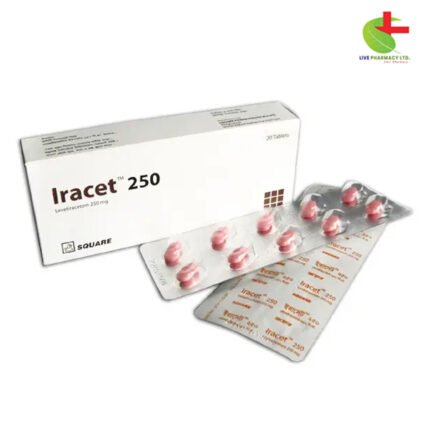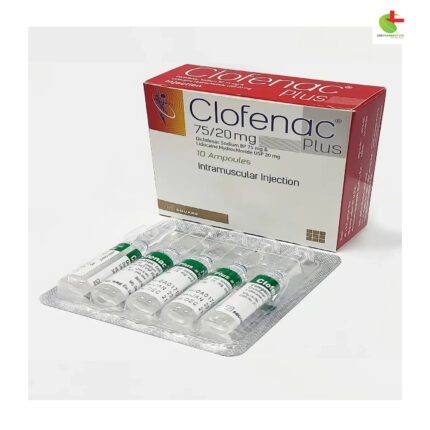Iracet 500
300.00৳ Strip
- Effective Epilepsy Management: Iracet is a trusted medication for epilepsy treatment in adults, adolescents, and children.
- Versatile Usage: Whether used alone for newly diagnosed cases or alongside other therapies for different seizure types, Iracet delivers consistent support.
- Mechanism of Action: While its precise mode of action is still under study, Iracet’s unique ability to inhibit burst firing without affecting normal neuronal excitability is noteworthy.
- Reliable Support: Count on Iracet for reliable epilepsy management solutions tailored to your needs.300.00
 Brand
Brand
|
Square Pharmaceuticals PLC |
|---|---|
 Generics
Generics
|
Levetiracetam |
Indications
Iracet serves as a standalone therapy for managing partial-onset seizures, both with and without secondary generalization, in adults and adolescents aged 16 and above who are newly diagnosed with epilepsy. It also acts as an adjunctive therapy:
- For treating partial-onset seizures, with or without secondary generalization, in adults, adolescents, children, and infants as young as 1 month old, who have epilepsy.
- In addressing myoclonic seizures in adults and adolescents aged 12 years and above diagnosed with Juvenile Myoclonic Epilepsy.
- For managing primary generalized tonic-clonic seizures in adults and adolescents aged 12 years and above diagnosed with Idiopathic Generalized Epilepsy.
Description
The precise mechanisms underlying Iracet’s antiepileptic effects remain unknown. While exhibiting minimal activity in certain tests, it has shown protective effects against secondarily generalized activity from focal seizures induced by specific chemoconvulsants. Iracet has demonstrated inhibition of burst firing without affecting normal neuronal excitability, suggesting a potential to prevent hyper synchronization of epileptiform burst firing and propagation of seizure activity.
Dosage
For adults and adolescents aged 16 years and above, the initial recommended dose is 250 mg twice daily, which can be increased to 500 mg twice daily after two weeks. Depending on clinical response, the dose can be further adjusted up to a maximum of 1500 mg twice daily.
For adults (≥18 years) and adolescents (12 to 17 years) weighing 50 kg or more, the starting dose is 500 mg twice daily, with adjustments made based on response and tolerability.
For pediatric use, oral solution is preferred for children under 6 years old. The tablet formulation is not suitable for children under 25 kg or those unable to swallow tablets. Dosing for children weighing 50 kg or more is the same as for adults.
Administration
Tablets should be taken orally with sufficient liquid, with or without food, and divided equally into two daily doses.
Interaction
Pre-marketing data suggest that Iracet has minimal influence on the serum concentrations of existing antiepileptic medications. However, caution is advised when co-administering with certain medications such as methotrexate or laxatives.
Contraindications
Avoid Iracet if there is hypersensitivity to its active substance or other pyrrolidone derivatives.
Side Effects
Common adverse reactions may include somnolence, asthenia, infection, dizziness in adults, and fatigue, aggression, nasal congestion, decreased appetite, and irritability in pediatric patients.
Pregnancy & Lactation
Iracet is not recommended during pregnancy or breastfeeding unless clinically necessary.
Precautions & Warnings
Special precautions are advised for patients with renal impairment, acute kidney injury, or a history of blood cell count abnormalities. Monitoring for signs of depression and/or suicidal ideation is also recommended during treatment.
Use in Special Populations
Dosing adjustments may be necessary for elderly patients and those with renal or hepatic impairment.
Overdose Effects
Symptoms of overdose include somnolence, agitation, aggression, and respiratory depression. Treatment is primarily supportive, with no specific antidote available.
Therapeutic Class
Iracet belongs to the category of adjunct anti-epileptic drugs.
Storage Conditions
Store Iracet at temperatures not exceeding 25°C in a dry place, protected from light.













Reviews
There are no reviews yet.